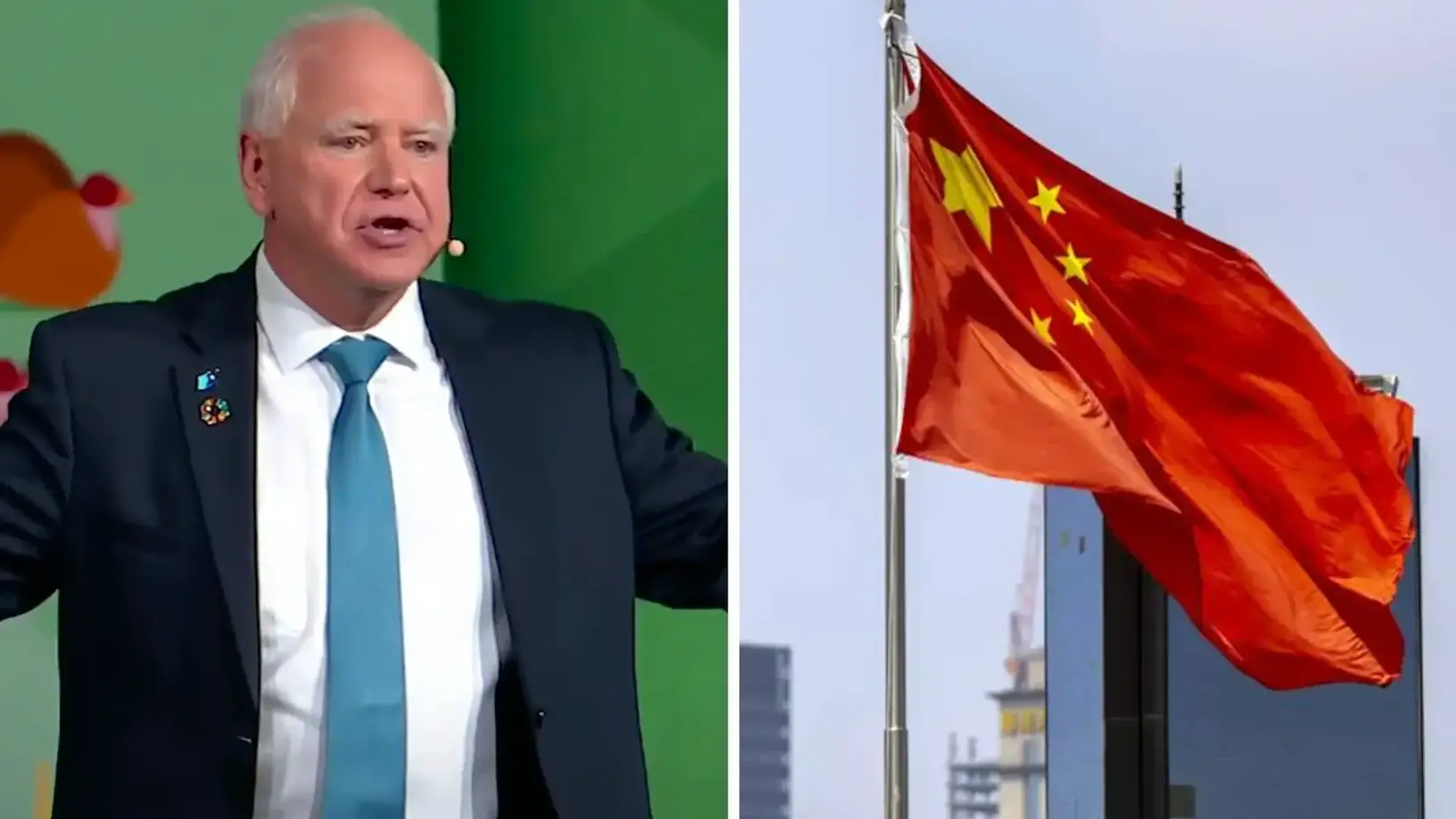In recent discussions, Minnesota Governor Tim Walz made headlines with a provocative statement: “Maybe I should just move to China, seems like I’d fit right in over there.” This remark has stirred curiosity and debate, prompting a deeper examination of its implications. While some may interpret his comment as a humorous quip, it reflects broader themes of globalization, identity, and political discourse in today’s world. In this article, we will explore the context surrounding Walz’s statement, its significance in the realm of politics, and the potential impact of globalization on personal identity.

The Context of the Statement
Tim Walz, a member of the Democratic-Farmer-Labor Party, has been an outspoken advocate for various progressive issues, including healthcare reform, education, and climate change. His comment about moving to China emerged amid heightened tensions between the United States and China, particularly regarding trade policies, human rights issues, and global health responses. By expressing a desire to “fit right in” with the Chinese landscape, Walz inadvertently highlights the complex relationship between national identity and globalization.
Understanding Globalization
Globalization has transformed the world, creating interconnectedness between nations and cultures. With the advent of technology, travel, and communication, individuals are exposed to diverse cultures and ideas. This exposure can lead to a sense of belonging that transcends geographical boundaries. For many, globalization fosters appreciation for different ways of life, and it can challenge traditional notions of identity.
Tim Walz’s remark can be seen as an acknowledgment of this global landscape. In a world where cultural exchanges are commonplace, the idea of belonging is no longer confined to one’s home country. Instead, people are increasingly embracing hybrid identities that incorporate elements from various cultures.
Political Discourse and Humor
Humor often serves as a lens through which we can examine serious issues. Walz’s comment may have been intended as a lighthearted take on the current political climate. However, it also underscores the frustration many feel about the state of American politics and international relations. The U.S.-China relationship has become a focal point for many political debates, and feelings of disillusionment can lead to tongue-in-cheek remarks like Walz’s.
This humorous commentary resonates with individuals who grapple with their political beliefs in an increasingly polarized environment. Many citizens find themselves questioning their place within their own country and wonder if other nations might offer a more welcoming atmosphere. Walz’s comment reflects a sentiment that has grown in various corners of American society—a desire for a more harmonious political climate.
The Reality of Moving Abroad
While Walz’s statement may have been made in jest, the idea of moving abroad is not entirely foreign to many Americans. The allure of different lifestyles, political environments, and opportunities can be enticing. In recent years, there has been an increase in the number of Americans considering relocation to other countries, driven by factors such as quality of life, healthcare systems, and educational opportunities.
China, in particular, presents a complex landscape for expatriates. With its rapidly growing economy, vibrant culture, and rich history, many are drawn to the possibilities it offers. However, potential movers must also consider the implications of living in a country with strict governmental control and human rights concerns. Walz’s flippant comment could prompt deeper reflections on what it means to belong in a nation that presents both opportunities and challenges.
Cultural Exchange and Personal Growth
Moving to a different country, such as China, can offer profound personal growth opportunities. Exposure to new cultures can expand one’s worldview and encourage individuals to rethink their values and beliefs. Walz’s hypothetical move raises questions about how individuals navigate their identities in foreign environments. Would he adapt to the local customs, or would he retain his Minnesota roots?
Cultural exchange fosters empathy and understanding, encouraging people to confront their biases and assumptions. By considering the complexities of living in another country, individuals can develop a more nuanced perspective on both their own identity and the identities of others.
Conclusion
Tim Walz’s whimsical statement about potentially moving to China serves as a springboard for discussions surrounding identity, globalization, and political discourse. In a world where borders are increasingly porous, the idea of belonging is fluid and multifaceted. As individuals like Walz express their frustrations with the current political landscape, it is essential to recognize the deeper implications of such remarks. Whether as a humorous quip or a genuine contemplation, Walz’s comment invites us to reflect on the interconnectedness of our global society and the ways in which we define ourselves within it. In an era where the world feels smaller, the search for belonging transcends borders, encouraging us all to explore our place in the global community.





